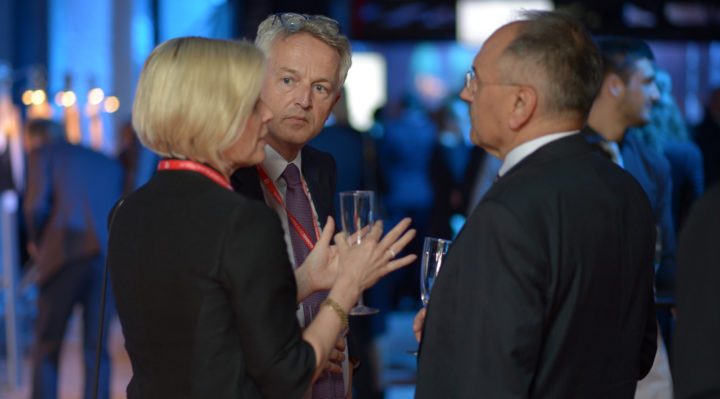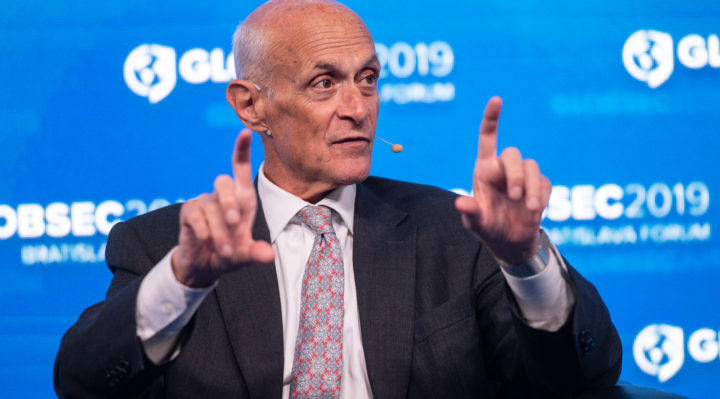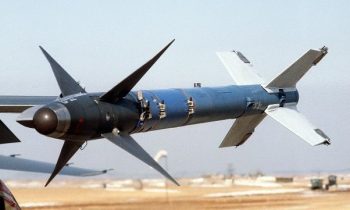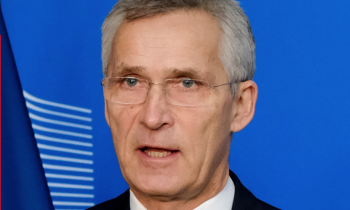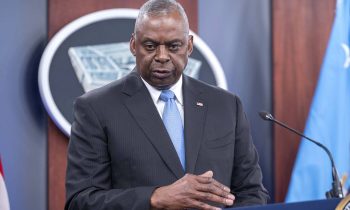The first-ever cyber crisis simulation workshop, called “Disruptive Dilemmas”, took place in Bratislava, Slovakia, on June 6 2019. Co-sponsored by NATO, this was the largest side event at the GLOBSEC Bratislava 2019 Forum. It featured a keynote address on navigating digital disruptions in countering terrorism by Dr. Benedetta Berti-Alberti, Head of Policy Planning at the Office of the NATO Secretary General.
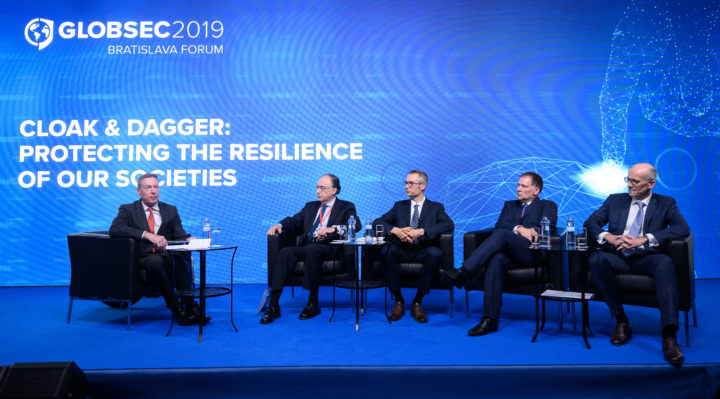
The workshop used four real-world, interactive crisis simulations to challenge diplomats, policy makers, think tank representatives, and leaders from the private sector and civil society. The simulations covered a wide range of topics, from using cyber and artificial intelligence in managing refugee crises at sea, through the cyber security challenges posed by foreign investments, and leveraging cyber capabilities in the battle against disinformation.

Responding to cybersecurity crises requires not only technical knowledge, but also human emotional intelligence, which is why “Disruptive Dilemmas” encouraged participants to use both cognitive and emotional intelligence to formulate solutions for a variety of complex cyber crises. The proposed solutions will be published in a white paper in late 2019.
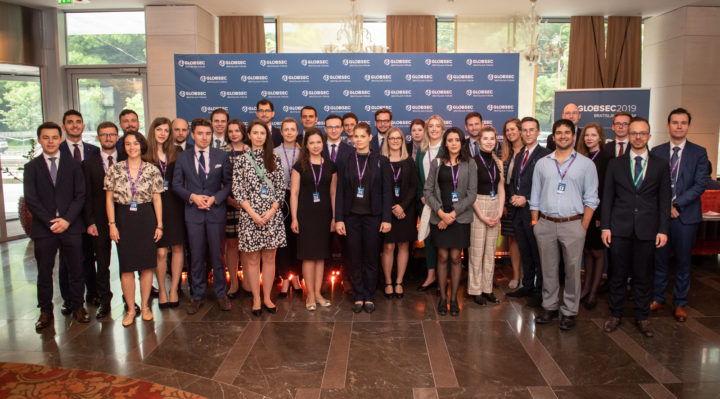
US – Speaking at the annual Globsec Security Forum here in Bratislava, Slovakia, Nato’s new Supreme Allied Commander Europe, Gen Tod Wolters, said “we are not interested in sharing the capabilities of our F-35 with Russia”.

“We do not want to have the F-35 in close proximity to the S-400 over a period of time because of the ability to understand the profile of the F-35 on that particular piece of equipment,” US Under Secretary of Defence Ellen Lord told reporters.

The first four F-35s due to be delivered to Turkey have still not left the US, officially to allow Turkish pilots to train in them in America.
Turkish President Recep Tayyip Erdogan said on Tuesday his country was “determined” to proceed with the S-400 deal.
“Unfortunately we haven’t received a positive proposal from the American side on the subject of Patriots like the S-400s from Russia,” he said.
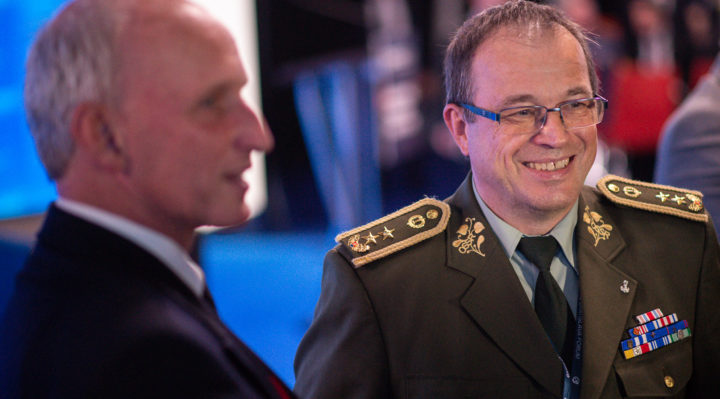
Turkey has the second-largest army in Nato, a 29-member military alliance set up to defend against what was at the time the Soviet Union.
The head of Russia’s state defence conglomerate Rostec, Sergei Chemezov, was quoted as saying on Friday that Russia would start delivering the S-400 to Turkey in “about two months”.

China’s technological advances have been highlighted by the trade stand-off with but the threat they pose will not be resolved in the current round of negotiations, a leading member of the US Senate has told the Globsec security forum in Slovakia.
Ron Johnson, the chairman of the Senate’s homeland security committee, asked participants to look beyond the current row over tariffs at the wider challenges posed by Beijing’s rapid innovation in telecommunications and data.
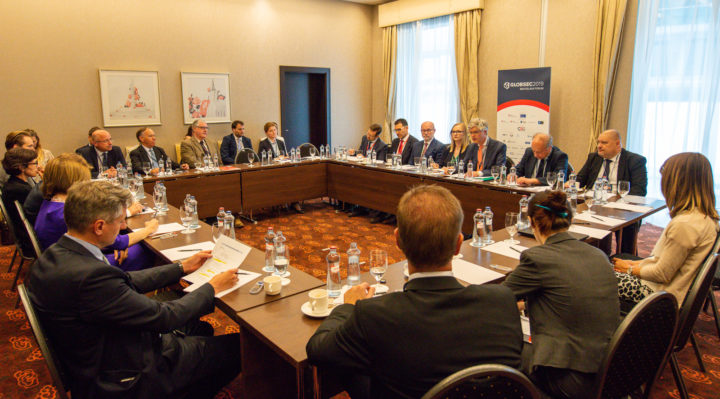
America First, the campaign slogan that President Donald Trump has brought to the White House, is really about ensuring US autonomy and security in the digital era, Mr Johnson said.
“For every elected official their first duty is to their nation,” he said “We need to watch China in terms of their malign actions. We’re stronger [in America] by being united in demanding they comply.”
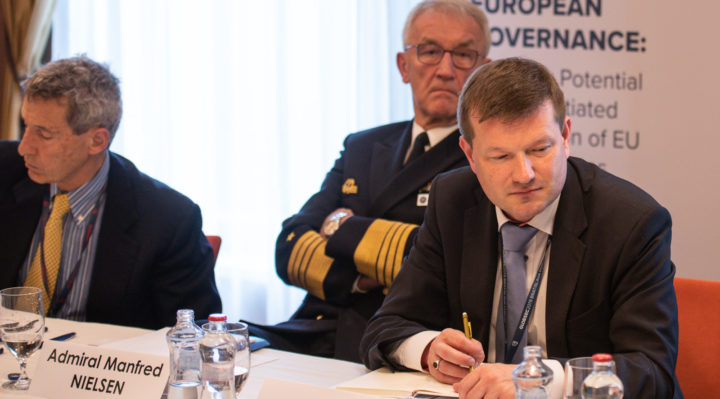
The ownership and exploitation of intellectual property and personal data was, he said, the key frontier battleground between the US and China.
“The most egregious offences aren’t going to be covered by a trade agreement,” he added. “It is the cyber theft, it is the espionage.”
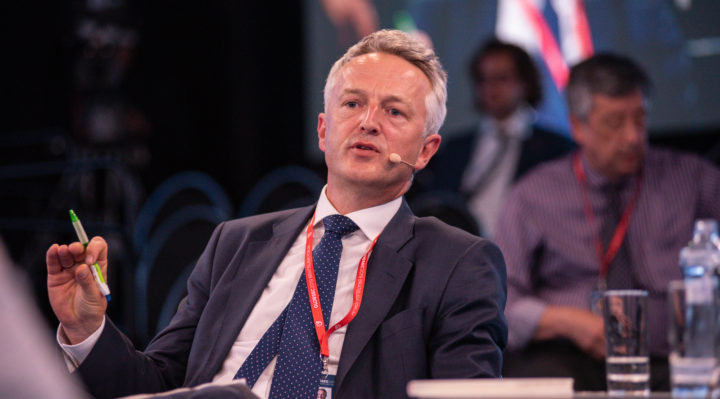
One focus of US efforts has been to resist the role of the Chinese firm Huawei in the roll-out of 5G networks. Huawei has become the cheapest and an increasingly dominant supplier of switching and other network technologies for the next generation telecoms systems.
“If the world embraces Huawei there are dangers,” he said. “Most of us don’t understand the real technological risks but we need to be aware of it.”
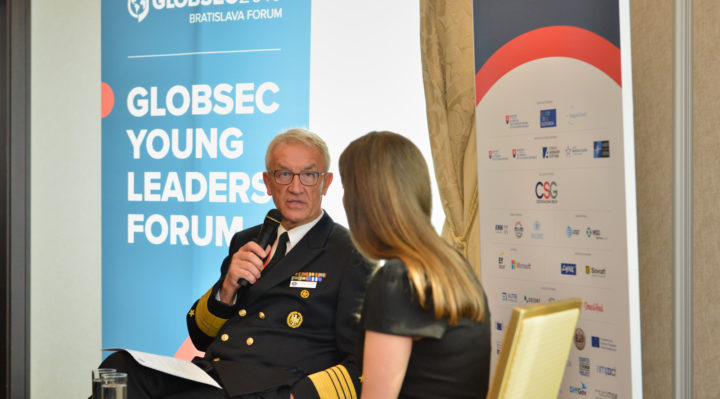
The senator also called for the US to move into a different posture to resist and deter cyber attacks. Countries that had conducted such attacks were not meeting an adequate level of retaliation.
“Those on cyber offence have got the lead, we need to strengthen cyber defences but we also need to go on the attack,” he said.

Gregory Garrett, a cybersecurity expert at the accounting and consulting firm BDO, told a separate Globsec panel that the blow back from international cyber attacks was being felt behind domestic borders. “Rogue nations states that are bad actors in the world of cyber attacks are increasingly working with organised crime,” he said.
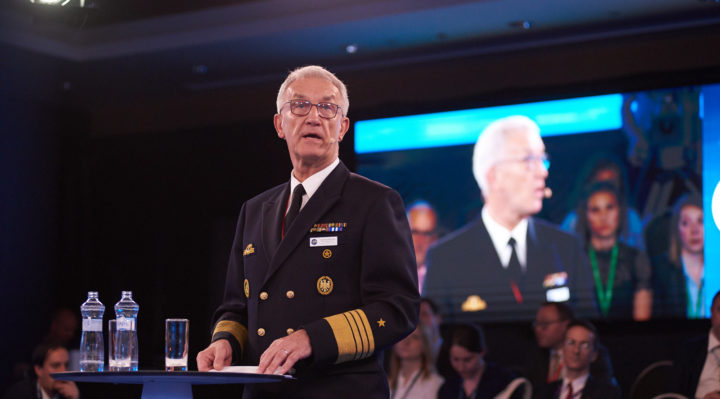
Gargash’s comments at the Globsec – The United Arab Emirates is concerned about the “massacre” in Sudan and supports calls for an investigation, Minister of State for Foreign Affairs Anwar Gargash said on Friday.
Sudan’s new military leaders have been under pressure after the worst violence since Omar al-Bashir’s fall in April.

“We are concerned about the massacre we’ve seen. We support calls for proper investigation,” Gargash said at the Globsec security and policy conference.
“We think it has complicated issues. We recognize that after 30 years of Bashir’s rule you won’t have a unified opposition, the only way forward is really a dialogue,” he said.
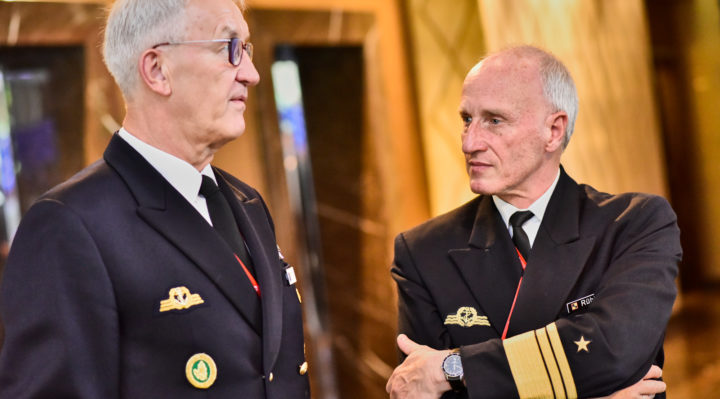
Advancement of North Macedonia – This is a joint success and it should be appreciated, and we should all give us credit for making this achievement, which two years ago was considered impossible, says Minister of Defence of North Macedonia Radmila Šekerinska at the GLOBSEC 2019 Bratislava Forum on Friday.
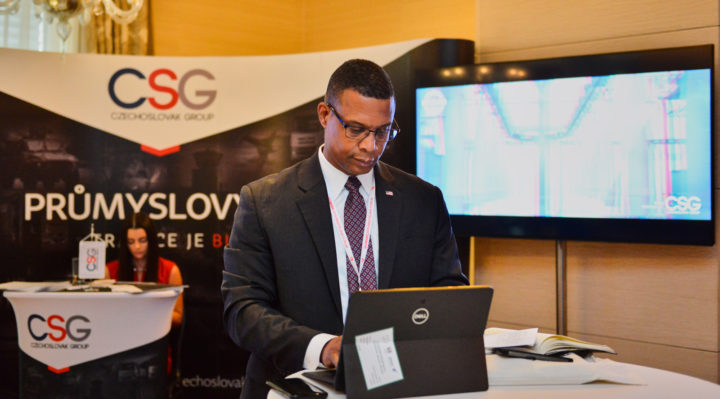
The Minister explains at the panel “NATO at 80”: Alliance Navigating Disrupted Partnerships that the country is now expecting the ratification of NATO treaty in the US Senat this autumn, which is much quicker than its predecessor Montenegro.
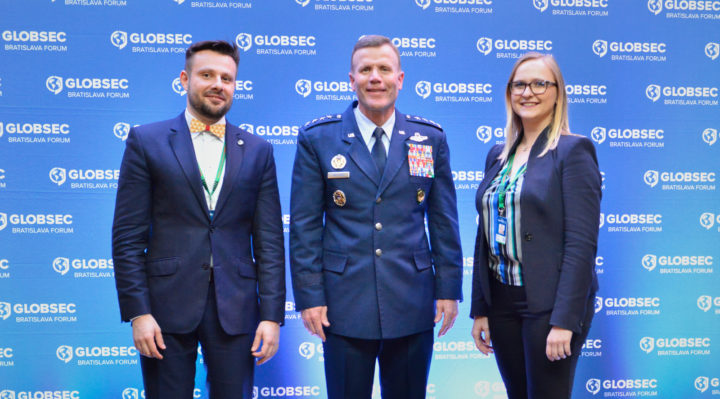
As North Macedonia is set to become the 30th member of the Alliance, Šekerinska pointed out that it would not have been possible without strong US support, adding that the country did its share of taking the risks and responsibility and NATO followed.
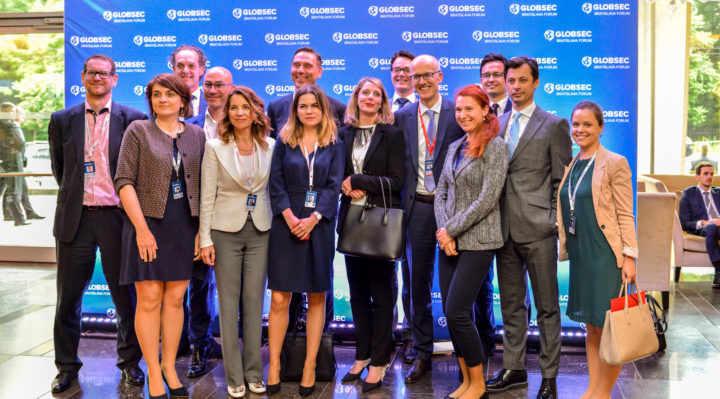
When it comes to the strategic goals of North Macedonia, she points out that they are very clear – to join the EU and NATO.
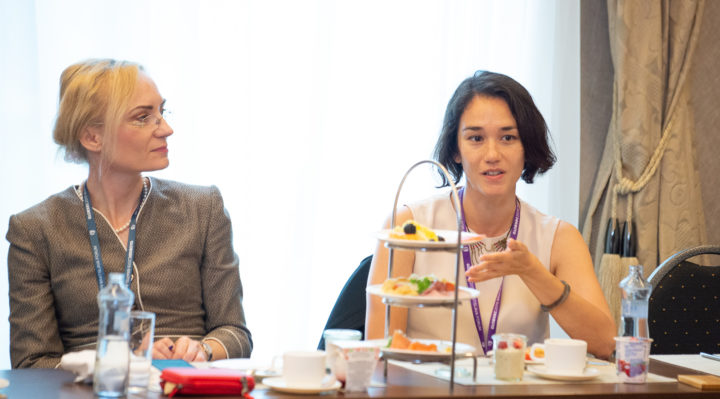
“What we have seen in our history is that real results emerge when these two organisations which are essentially based on the same values and more or less the same strategic goals, cooperate well. In the history of our country, and to a certain extent in the history of our region, whenever this partnership worked everyone felt more secure and better,“ says the Minister of Defence of North Macedonia.
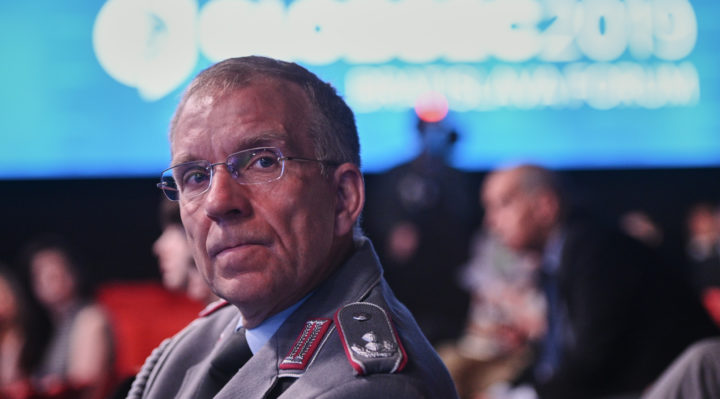
She also believes that the country and the region, as well, need a strong and clear NATO, with the same mission empowered by the new challenges, adding that they also need the EU that will take the responsibility for its continent, and not only with regards to defence.
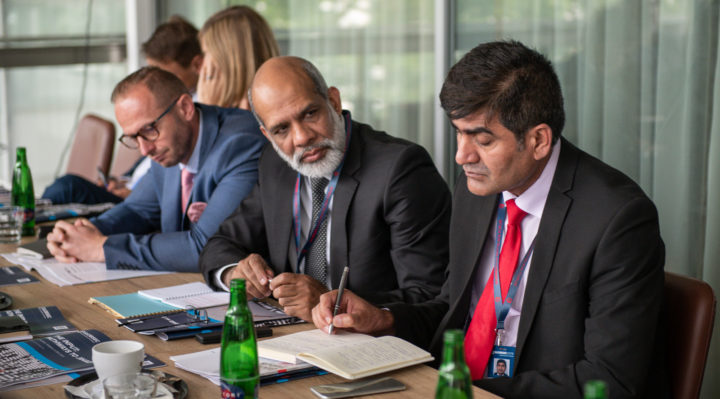
On the question what comes next for North Macedonia, Šekerinska emphasised that the country now waits for the EU decision to start the accession talks.

“What we have given to our region, to ourselves and to the EU is one of the few successes. It was successful because we committed, and because we have shown the courage, together with the Greek government, but also because NATO and the EU were supporting us,“ she says.
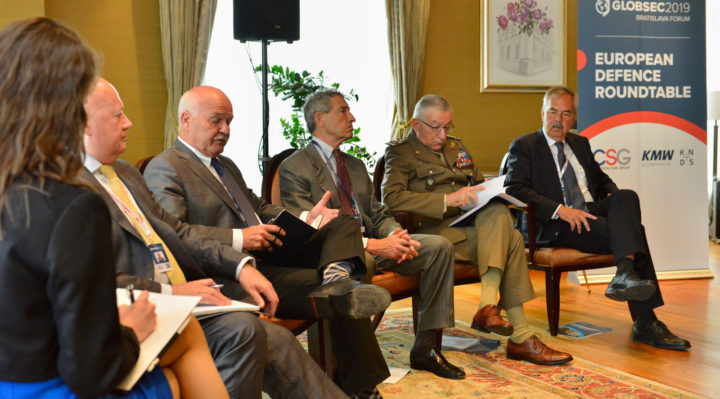
Šekerinska notes that everyone can benefit from the stable Balkans and that North Macedonia should be seen as an example.
“We all have stakes in stable Balkans. We do see our advancement as an investment in the stability of the region. We are sending a message to the other countries of the region that compromises, good policy and political courage pay off and move the country forward,“ Šekerinska says.

She also points out that North Macedonia has a strong support of its neighbours when it comes to NATO membership.
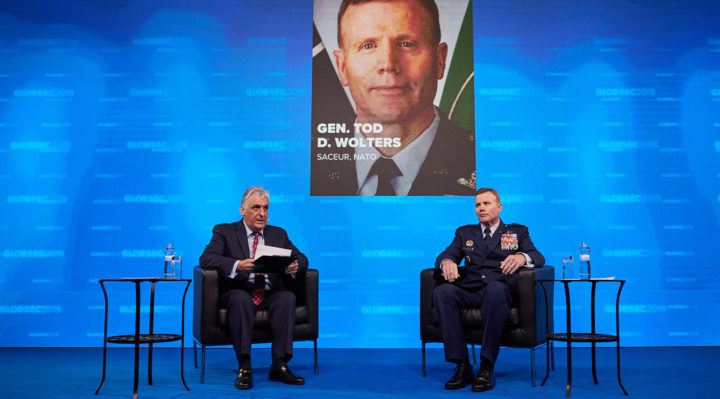
“We do not expect that any of the countries in the region will be interested in creating an obstacle. The first countries to ratify an agreement were the countries from the region, our imminent neighbours. This would have been impossible to foresee 15 years ago. It says – with all the problems in the Balkans, that region has moved forward,“ Šekerinska concludes.
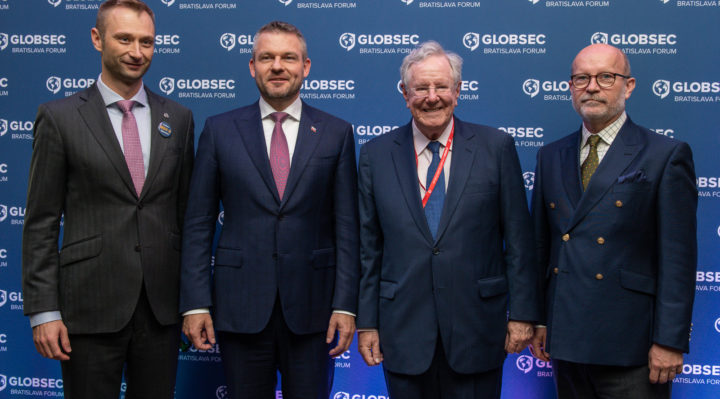
Slovakia is the only V4 country where it is possible to observe a direct correlation between the belief in conspiracy theories and higher education levels.

More than 50 percent of Slovaks would prefer to position their country between the East and West, up by 14 percent compared to last year. Moreover, Slovakia remains an outlier in central Europe in its support for Russia, with 13 percent of Slovaks preferring a pro-Eastern orientation in 2018. In other central European countries, support did not exceed 10 percent.
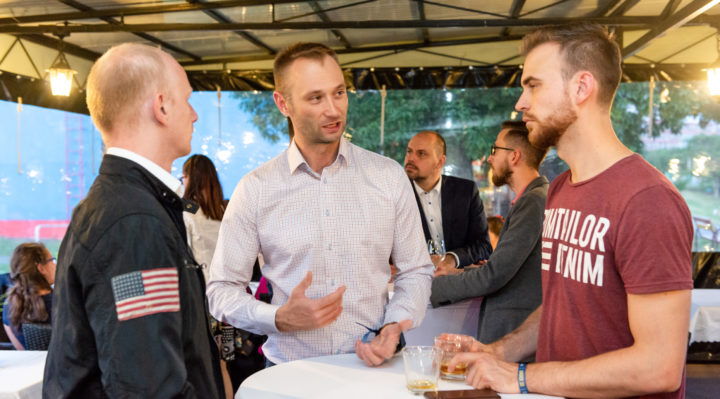
“Slovakia has historically been the country with the weakest support for the West (including NATO and the US) among the Visegrad Group and was also the last country to join NATO,” the report suggests. “With only 21 percent support, the country remains the least supportive of a pro-Western orientation.”

“While support for the EU rose among Czechs and Slovaks – originally more Eurosceptic countries – positive perceptions decreased in Poland and Hungary,” the report reads.
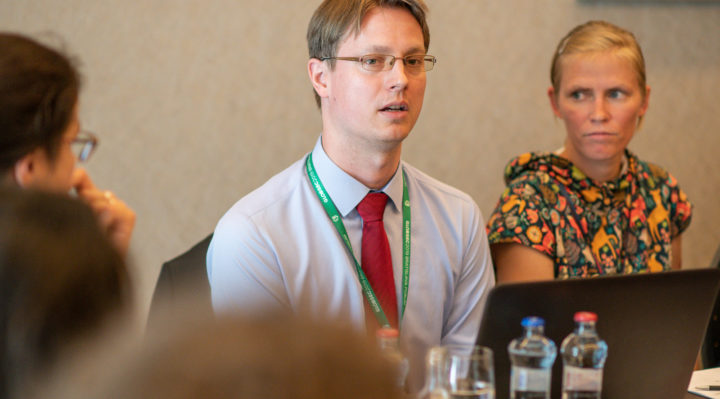
“Slovakia’s youth hold the most positive views on the EU, with 68 percent of 18-24 year olds perceiving it as a good thing for their country compared to 41 percent of 65 years old and above,” the report reads.
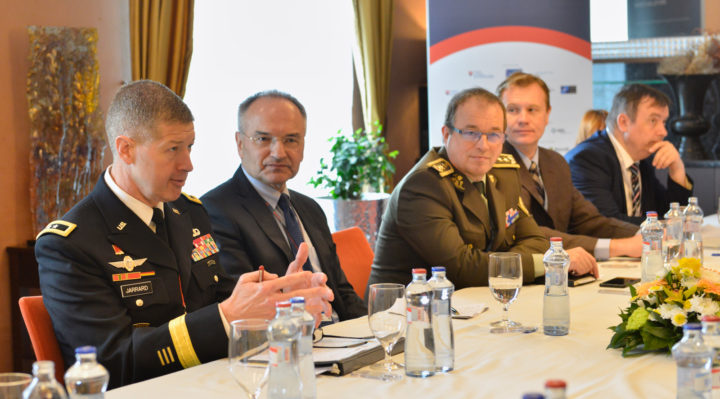
“Only 27 percent believe that Russia tried to influence the outcome of several elections in Europe, making Slovakia the least aware of such efforts,” the report reads.
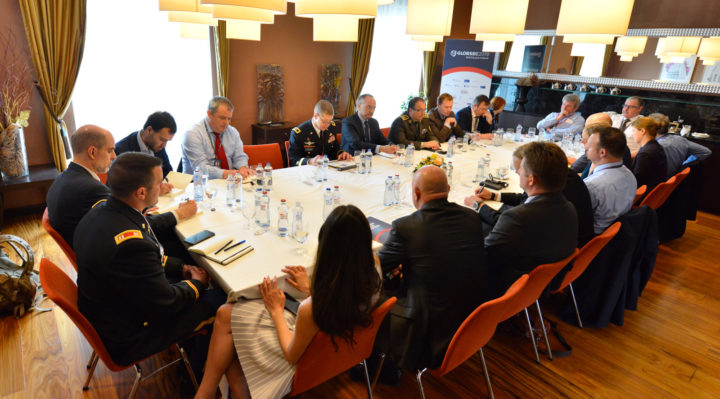
“While Slovaks are more conspiracy-prone, Czechs are the most impervious to such theories,” the report reads.
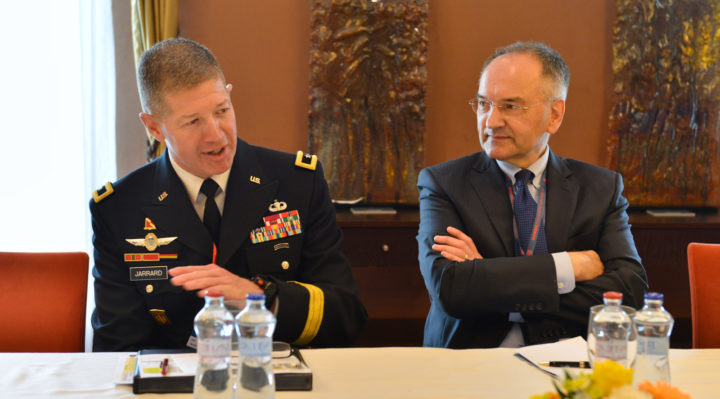
Daniel Milo, the head of a strategic communications programme at the think tank, said his country – occupied by the former Soviet Union when part of Czechoslovakia – is a particularly vulnerable target.
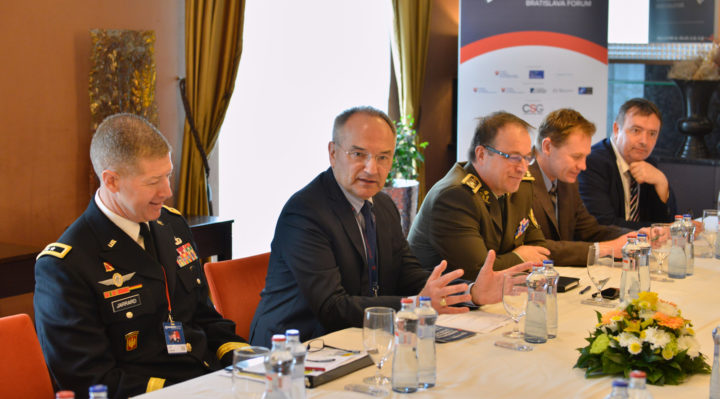
“If you combine these two, add a bit of sugar-coating such as labelling Ukraine as a fascist state, the EU as pushing for some foreign alien, values, it is a perfect storm,” Mr Milo said.
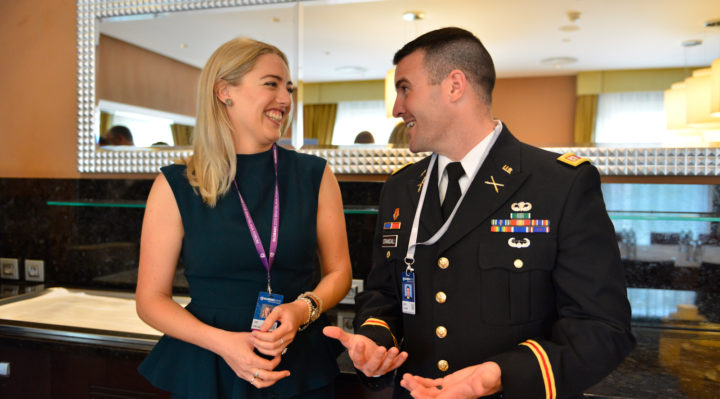
“People saw this as a very easy way to score political points,” said Mr Milo.
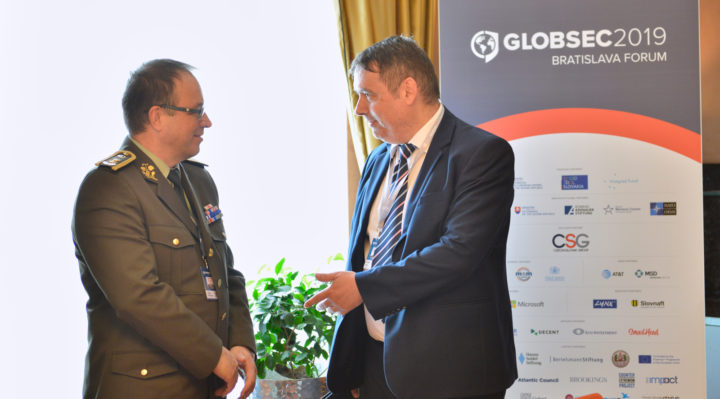
“This type of narrative – bashing the EU, bashing NATO, bashing the US – could win potentially political points and this has been manifested recently in the polls.”

